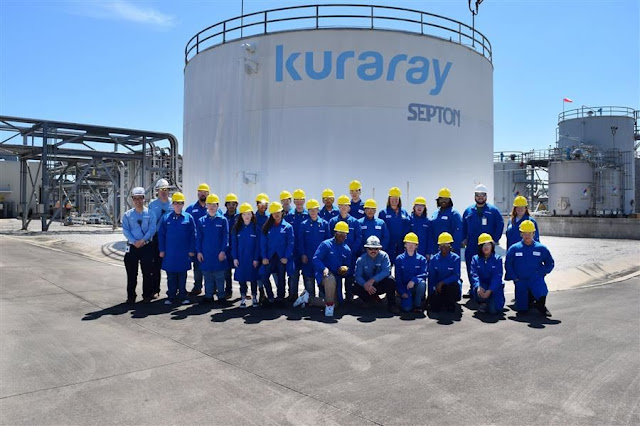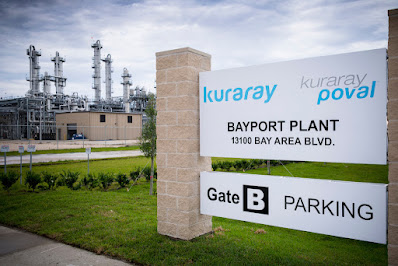Polyvinyl Alcohol (PVA) powder stands as a testament to the remarkable advancements in polymer chemistry, finding applications in a wide array of industries. This water-soluble synthetic polymer offers unique properties, making it a valuable ingredient in various formulations. In this article, we delve into the characteristics of PVA powder, its diverse applications, and explore reliable suppliers that cater to the growing demand for this versatile material.
Polyvinyl Alcohol Powder: An Overview
Polyvinyl Alcohol, commonly known as PVA, is a synthetic
polymer derived from the polymerization of vinyl acetate. The process involves
hydrolyzing polyvinyl acetate to remove the acetate groups, resulting in a
water-soluble and versatile polymer – Polyvinyl Alcohol. PVA is available in
various forms, including powder, resin, and film, with each having distinct
properties suitable for different applications.
Properties of Polyvinyl Alcohol Powder:
- Water
Solubility: PVA powder is known for its excellent water solubility,
making it a preferred choice for applications where water-based
formulations are essential. This property allows for easy processing and
dissolution in aqueous solutions.
- Film-Forming
Capability: PVA powder exhibits a remarkable film-forming capability,
making it an ideal material for coatings, adhesives, and films. The formed
films possess excellent mechanical strength, flexibility, and
transparency.
- Chemical
Stability: PVA is chemically stable under various conditions, ensuring
its durability in different environments. This stability contributes to
its widespread use in industries such as textiles, paper, and
construction.
- Biodegradability:
PVA is considered environmentally friendly due to its biodegradable
nature. It breaks down into non-toxic components, minimizing its impact on
the environment compared to non-biodegradable polymers.
Applications of Polyvinyl Alcohol
Powder:
- Textile
Industry: PVA powder is widely employed in the textile industry as a
sizing agent. It improves the weaving efficiency by providing better
adhesion between fibers and preventing yarn breakage during the weaving
process.
- Paper
Industry: In paper manufacturing, PVA is used as a binder and coating
agent, enhancing the paper's strength and surface properties. It
contributes to improved printability and smoothness.
- Adhesives
and Sealants: PVA powder serves as a key component in the formulation
of water-based adhesives and sealants. Its excellent bonding properties
make it suitable for a variety of substrates.
- Construction
Industry: PVA is utilized in construction applications as an additive
in cement-based formulations. It enhances the workability and adhesion of
mortars and reduces water permeability in concrete.
- Packaging
Films: The film-forming ability of PVA makes it an ideal material for
packaging films. These films provide barrier properties, ensuring the
protection and preservation of packaged goods.
- Kuraray
Co., Ltd.: Kuraray, a global specialty chemical company, is a
prominent supplier of PVA. They offer a range of PVA grades suitable for
diverse applications, ensuring high quality and consistent performance.
- Sekisui
Chemical Co., Ltd.: Sekisui Chemical is another leading supplier of
PVA, providing a comprehensive portfolio of PVA products. Their commitment
to innovation and sustainability makes them a reliable partner for various
industries.
- Nippon
Synthetic Chemical Industry Co., Ltd.: Nippon Synthetic Chemical
Industry is known for its high-quality PVA products. With a focus on
research and development, they continue to offer advanced solutions to
meet the evolving needs of the market.
- OCI
Company Ltd.: OCI Company is a global chemical company that supplies
PVA for a wide range of applications. Their dedication to quality and
customer satisfaction positions them as a trusted supplier in the
industry.
Conclusion:
Polyvinyl Alcohol powder stands as a versatile polymer with
a myriad of applications across industries. Its unique properties, including
water solubility, film-forming capability, and biodegradability, contribute to
its widespread use in textiles, paper, adhesives, construction, and packaging.
Reliable suppliers like Kuraray, Sekisui Chemical, Nippon Synthetic Chemical
Industry, and OCI Company play a crucial role in ensuring a stable and quality
supply of PVA, supporting the diverse needs of industries worldwide. As the
demand for environmentally friendly and efficient materials continues to grow,
the future of Polyvinyl Alcohol powder looks promising, offering sustainable
solutions across various sectors.





.jpg)








